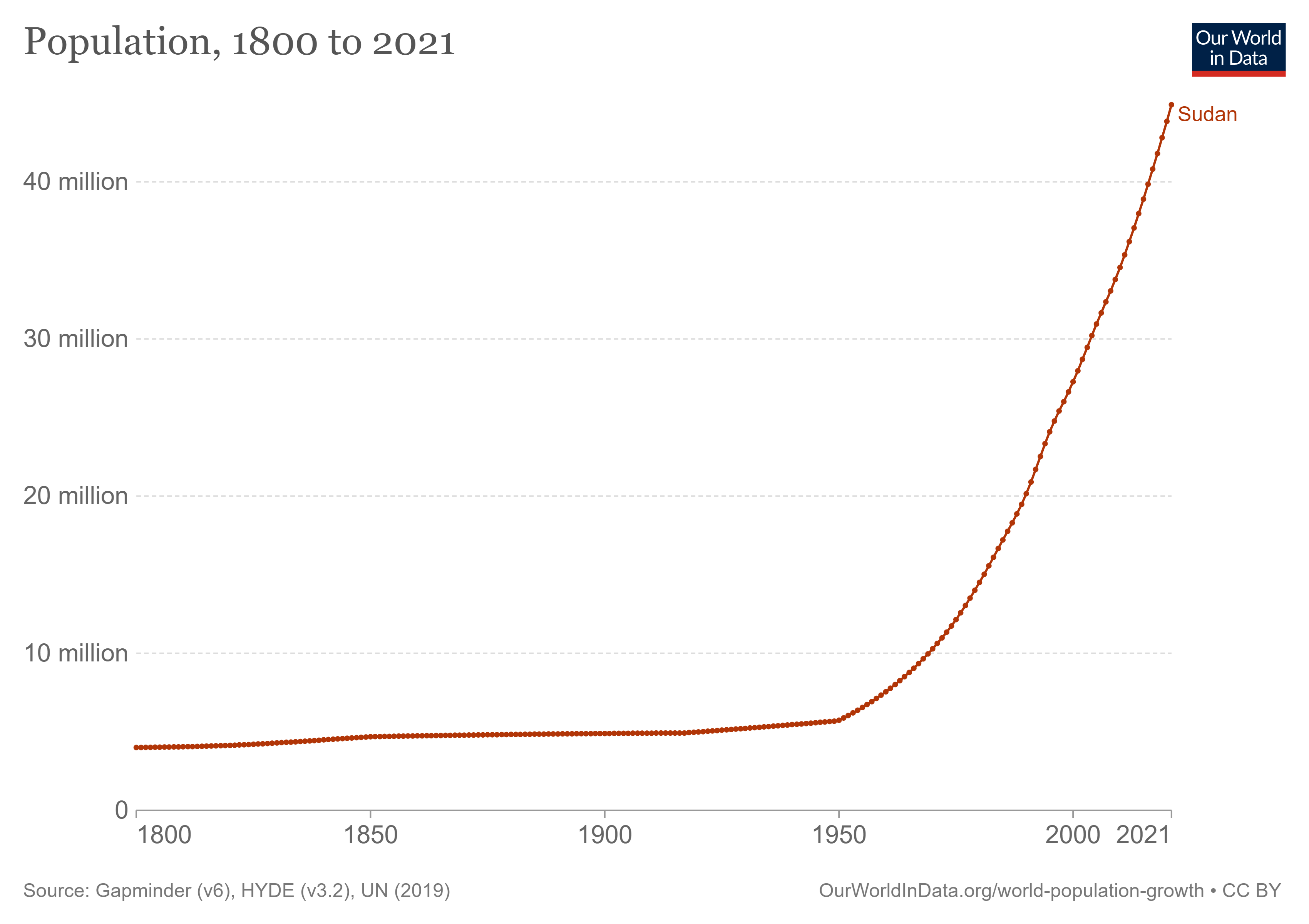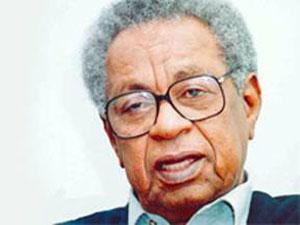|
Buthaina Khidir Mekki
Buthaina Khidir Mekki (; born in Shendi, Sudan) is a Sudanese novelist and short story writer. She is a founding member of the Sudanese Writers Union as well as the first president of the Sudanese Women Writers Association. Author of nine books of Arabic novels and collections of short stories, she was called an "icon of the Sudanese feminist novel" for her narratives about negative social stereotypes towards the education of young girls and the consequences of conflict and war for women. Life and career Mekki graduated with a Bachelor of Literature in English Language from King Abdelaziz University in Jeddah, Saudi Arabia, in 1978. Further, she obtained a Diploma for Teaching English as a Foreign Language from the Faculty of Arts at University of Khartoum in 1988 and a Higher Diploma in Folklore from the same university in 1992. From 1978 to 1990, she worked as a secondary school English teacher in Khartoum. Mekki has published five novels and several collections of short sto ... [...More Info...] [...Related Items...] OR: [Wikipedia] [Google] [Baidu] |
Shendi
Shendi or Shandi () is a small city in northern Sudan, situated on the southeastern bank of the Nile River 150 km northeast of Khartoum. Shandi is also about 45 km southwest of the ancient city of Meroë. Located in the River Nile state, Shandi is the center of the Ja'alin tribe and an important historic trading center. Its principal suburb on the west bank is Matamma. A major traditional trade route across the Bayuda Desert connects Matamma to Merowe and Napata, 250 km to the northwest. The city is the historical capital of the powerful Sudanese Arab Ja'alin tribe whom most of its denizens belong to. The village of Hosh Bannaga, hometown of former President Omar al-Bashir, is located on the outskirts of the city. Etymology There are several theories as to the origin of Shendi's name. One theory claims that the name comes from an old Nubian word for "lip" because the town is located in the bend of the Nile River, which is similar to the shape of lips. ... [...More Info...] [...Related Items...] OR: [Wikipedia] [Google] [Baidu] |
University Of Toledo
The University of Toledo (UToledo or UT) is a Public university, public research university in Toledo, Ohio, United States. It is the northernmost campus of the University System of Ohio. The university also operates a Health Science campus, which includes the University of Toledo Medical Center, in the Neighborhoods in Toledo, Ohio, West Toledo neighborhood of Toledo; the Center for the Visual Arts is located in downtown Toledo at the Toledo Museum of Art; and a research and education facility, known as the Lake Erie Center, at Maumee Bay State Park. The university was founded in 1872 in downtown Toledo as the Toledo University of Arts and Trades. It closed after six years. The city of Toledo took it over, reopening it in 1884 as the Toledo Manual Training School. The vocational school was developed as a university through the late 1800s. In 1931 the university moved to its current location in the Neighborhoods in Toledo, Ohio, Ottawa neighborhood. Since its establishment, ... [...More Info...] [...Related Items...] OR: [Wikipedia] [Google] [Baidu] |
Sudanese Novelists
The demographics of Sudan include the Sudanese people () and their characteristics, Sudan, including population density, Ethnic group, ethnicity, education level, health, economic status, religious affiliations, and other aspects of the population. In Sudan's 1993 census, the population was calculated at 30 million. No comprehensive census has been carried out since that time due to the Second Sudanese Civil War. Estimates of Sudan, including the population of South Sudan, ranged from 37 million (United Nations) to 45 million (CIA). Since the secession of South Sudan in July 2011, the current population of Sudan is estimated to be about million. The population of metropolitan Khartoum (including Khartoum, Omdurman, and Khartoum North) is growing rapidly and ranges from six to seven million, including around two million displaced persons from the southern war zone, as well as western and eastern drought-affected areas. Overview The majority of the population in Sudan are the i ... [...More Info...] [...Related Items...] OR: [Wikipedia] [Google] [Baidu] |
Sudanese Women Writers
The demographics of Sudan include the Sudanese people () and their characteristics, Sudan, including population density, ethnicity, education level, health, economic status, religious affiliations, and other aspects of the population. In Sudan's 1993 census, the population was calculated at 30 million. No comprehensive census has been carried out since that time due to the Second Sudanese Civil War. Estimates of Sudan, including the population of South Sudan, ranged from 37 million (United Nations) to 45 million (CIA). Since the secession of South Sudan in July 2011, the current population of Sudan is estimated to be about million. The population of metropolitan Khartoum (including Khartoum, Omdurman, and Khartoum North) is growing rapidly and ranges from six to seven million, including around two million displaced persons from the southern war zone, as well as western and eastern drought-affected areas. Overview The majority of the population in Sudan are the indigenous Nubi ... [...More Info...] [...Related Items...] OR: [Wikipedia] [Google] [Baidu] |
Living People
Purpose: Because living persons may suffer personal harm from inappropriate information, we should watch their articles carefully. By adding an article to this category, it marks them with a notice about sources whenever someone tries to edit them, to remind them of WP:BLP (biographies of living persons) policy that these articles must maintain a neutral point of view, maintain factual accuracy, and be properly sourced. Recent changes to these articles are listed on Special:RecentChangesLinked/Living people. Organization: This category should not be sub-categorized. Entries are generally sorted by family name In many societies, a surname, family name, or last name is the mostly hereditary portion of one's personal name that indicates one's family. It is typically combined with a given name to form the full name of a person, although several give .... Maintenance: Individuals of advanced age (over 90), for whom there has been no new documentation in the last ten ... [...More Info...] [...Related Items...] OR: [Wikipedia] [Google] [Baidu] |
Sudanese Literature
Sudanese literature consists of both oral as well as written works of fiction and nonfiction that were created during the cultural history of today's Republic of the Sudan. This includes the territory of what was once Anglo-Egyptian Sudan, the independent country's history since 1956 as well as its changing geographical scope in the 21st century. Even though there exist records about historical societies in the area called Sudan, like the Kingdom of Kush in Nubia, little is known about the languages and the oral or written literature of these precursors of the Sudan of today. Moreover, the notion of Bilad al-Sudan'','' from which the name of the modern country is derived, referred to a much wider geographic region to the south of the Sahara, stretching from western to eastern Central Africa. Like in many African countries, oral traditions of diverse ethnic or social groups have existed since time immemorial, but a modern written Sudanese literature can only be traced back to ... [...More Info...] [...Related Items...] OR: [Wikipedia] [Google] [Baidu] |
Africa World Press
Africa World Press (AWP) is a publishing company founded in 1983 by Kassahun Checole in Trenton, New Jersey, United States, with a mission to publish books on the history, culture and politics of Africa and the African diaspora. Two years later, The Red Sea Press was added as an imprint of AWP, with a primary focus on the Horn of Africa, and taking on the role of distributor for books on and about Africa and people of African descent in the continent as well as the diaspora. Background and output The president and publisher of Africa World Press and The Red Sea Press is Kassahun Checole, who grew up in Eritrea. He attended Haile Selassie University, and in 1971 went to further his education at the State University of New York at Binghamton (SUNY Binghampton), where he developed his interest in Pan African movements; after earning an undergraduate degree in political science and African-American studies and his master's in sociology, he took up a position as a professor of sociol ... [...More Info...] [...Related Items...] OR: [Wikipedia] [Google] [Baidu] |
Gender Inequality
Gender inequality is the social phenomenon in which people are not treated equally on the basis of gender. This inequality can be caused by gender discrimination or sexism. The treatment may arise from distinctions regarding biology, psychology, or cultural norms prevalent in the society. Some of these distinctions are empirically grounded, while others appear to be social constructs. While current policies around the world cause inequality among individuals, it is women who are most affected. Gender inequality weakens women in many areas such as Gender disparities in health, health, Sex differences in education, education, and Gender pay gap, business life. Studies show the different experiences of genders across many domains including education, life expectancy, personality, interests, family life, careers, and political affiliation. Gender inequality is experienced differently across different cultures. Sex differences Biology Natural differences exist between the sexes bas ... [...More Info...] [...Related Items...] OR: [Wikipedia] [Google] [Baidu] |
Malkat Al-Dar Muhammad
Malkat al-Dar Mohamed Abdullah (, Sudanese Arabic, Sudanese: , 1920 – 17 November 1969), also spelled as Malikah ad-Dar, was a List of Sudanese writers, Sudanese literary writer, educator and Gender inequality in Sudan, women's rights activist. Her novel written in the 1950s, "''Al-Faragh al-'arid''" (''The Wide Void''), has been characterized as the first Sudanese novel in the style of social realism. Sudanese literary critic Lemya Shammat called her "a pioneer of the literary Feminism, feminist renaissance and a woman of spirit and courage." Life and career Malkat al-Dar Mohamed was born in El-Obaid, the capital city of today's federal state of North Kordofan. She completed her early education at the al-Qubba School, the first girls’ school in western Sudan. After completing primary and secondary school, she enrolled in the Normal school, teachers college in Omdurman in 1943 and served as a teacher after her graduation. She started learning English on her own, making ... [...More Info...] [...Related Items...] OR: [Wikipedia] [Google] [Baidu] |
Arab Writers Union
The Arab Writers Union (ar.: اتحاد الكتاب العرب) is an association of Arab writers, founded in 1969, in Damascus, Syria, at the initiative of a group of Arab writers including Syrian novelist Hanna Mina. In 2008, the union was moved from Damascus to Cairo and in 2015 to Abu Dhabi. Its current president is Muhammad Al-Hourani. In 2010, the Union published a list of the "100 Best Arabic novels," although the list in fact contained 105 entries. It ranked Egyptian author Naguib Mahfouz's ''Cairo Trilogy'' as the best Arabic-language novel, followed by ''In Search of Walid Masoud'' by Jabra Ibrahim Jabra and ''Honor'' by Sonallah Ibrahim. Controversies On 27 January 1995, following Syrian pressure, it was announced in Damascus that the Arab Writers Union had expelled the Syrian poet Adunis, for his participation in a meeting in Spain in 1993 that was attended by Israeli foreign minister Shimon Peres. This prompted widespread criticism among Arab intellectuals, with H ... [...More Info...] [...Related Items...] OR: [Wikipedia] [Google] [Baidu] |



